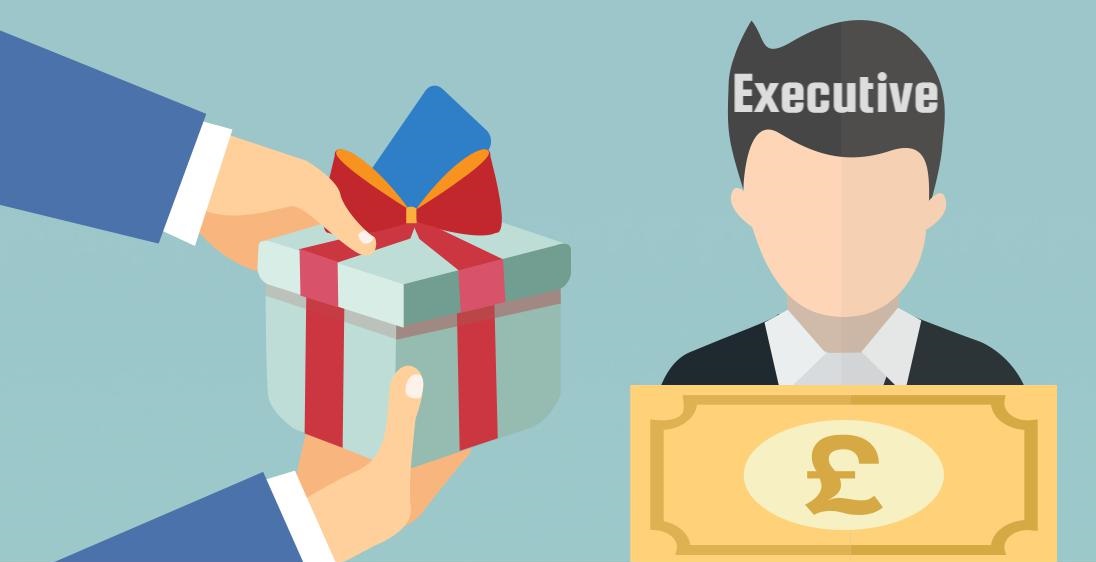How does operant conditioning work in everyday life? MSc Marketing student Allison Katz applies the theories from her courses to her decisions past and present to navigate the job search process and the workplace.
Before joining LSE, I was a consumer goods and services strategy consultant for four years. I enjoyed navigating the workplace, but after a few months of my Marketing degree at LSE, I’m realizing how many of the tools and frameworks from my Consumer Insights course can be applied to real-world life decisions. Here’s a little look at how you can apply business theories at each step of the hiring process – searching, interviewing, on-boarding, training, and working – to help you navigate them in new ways.
Step 1: Searching for a job
Why? What motivates us? Five years ago, it would have seemed rhetorical (Of course I need a job!). Now, self-determination theory provides a way to examine my motivations and extricate my goals. Our behavior is regulated by a mix of motivations that can be described as intrinsic (for the joy, interest, or challenge of it) and extrinsic (to achieve an outcome). If we apply the theory to thinking about why someone looks for work, an intrinsic motivation is, “I would do this even if it didn’t pay a cent, even if it didn’t help anyone, because I genuinely just enjoy doing it.” On the other hand, an extrinsic motivation is “I need the paycheck.” In reality, we’re likely to land somewhere between these two, due to holding multiple motivations for a single behavior.
As you might imagine, the stronger motivators are the internal ones. Intrinsic motivation means excitement, interest, and confidence. Not only does this lead to increased satisfaction, but it also improves performance.
This framework helps me describe why I took a break from my career to invest in my education. I did it in order to develop the areas of my work where I knew I had the most intrinsic motivation. Throughout the years, marketing-related topics (e.g. customer segmentation, trade pricing analysis) were what I enjoyed most. Thus, with the knowledge I can gain in this program, I can focus my career on the areas where I am intrinsically motivated to succeed. Which areas do you always find yourself drawn towards?
Step 2: Application and interview
What may be critical here is understanding the heuristics inherent to the hiring process. Heuristics are mental shortcuts that we take to make decisions more efficiently. For example, in the interview process, we may see evidence of “representativeness,” which has to do with how well you fit the mental model of the candidate the panel is looking for.
When I return to the workplace, the representativeness heuristic may work in my favor. Not only will I benefit from the knowledge I’ve gained at LSE, but also, with a master’s degree, it’s more likely I’ll resemble the mental model of who is supposed to be there. Representativeness heuristics are part of why we are told to “fake it ‘til we make it” when it comes to projecting confidence. Even if we only seem confident (by sitting up straight, speaking clearly and evenly, etc.), we fit the mental model of someone who is competent.
Step 3: Orientation
To some degree, everyone is sizing everyone else up. The social comparisons will be flying all around when you start a new job. We might first infer the status of other new hires based on their appearance. How do they comport themselves? Are they standing tall? Do they speak eloquently? We’ll also likely infer the status of the employees on the team we’re joining by seeing how they treat each other – who defers to whom?
When I worked in consulting- in almost every setting that required an introduction- we were asked to state our name, where we were from, where we went for undergrad, and what we majored in. I was a clinical psychology major in a room full of economics, mathematics, and business majors. At first, I felt rather insecure because I didn’t fit the mold. I didn’t have the same sort of background – a background which, I thought, would definitely give them an edge over me in the consulting world. I went to my career counselor with my concern, and she advised me to start “countersignaling.” She told me, “Own your differences, have confidence in being unique and everyone else in the room will think, ‘Wow, she must be really smart to be here without the requisite background.’” And she was right! Once I tried this tactic, I noticed that people treated me as if I had higher status rather than deficient qualifications.
Step 4: Working!
As I continued onwards and upwards, I was being shaped into the consultant my firm wanted me to be with the use of operant conditioning. Desired behavior was encouraged by adding something enjoyable or taking away something unpleasant, and unwanted behavior was discouraged by adding something unpleasant or taking away something enjoyable. Below are some examples (and in a classic consulting move, they’re in a 2×2).
| Encourage
(i.e. “Reinforcement”) |
Dissuade
(i.e. “Punishment”) |
|
| Add
(i.e. “Positive”) |
Positive Reinforcement – “Reward” Your boss congratulates you on a job well done. |
Presentation Punishment – “Type I Punishment” Your boss micromanages everything you do, and you’re subject to extra review cycles and harsher critiques. |
| Take Away
(i.e. “Negative”) |
Negative Reinforcement – “Escape” Your managing director lets you roll off of the soul-sucking project you’ve been stuck with for three months. |
Removal Punishment – “Type II Punishment” You have to work the weekend. Again. |
I was also subject to classical conditioning, where an unconditioned stimulus is paired with a conditioned one, resulting in the same response (e.g. Pavlov’s dog). For instance, I consulted for a potato chip manufacturer, and had an amazingly fun team. Now, every time I see one of their brands, I smile and feel happy, and I’m more likely to buy them than before. In this example, the unconditioned stimulus was my awesome colleagues, which resulted in my unconditioned response of happiness and enjoyment.
But, let’s be real. Consulting is not a cake made of rainbows and smiles. Sometimes it takes hard work and late nights to make clients happy. One of my first projects monopolized almost every weekend my first summer in Chicago, in addition to staying late at the office every weekday. There were moments that I felt truly exhausted, and like I’d made a completely wrong decision, and that I ought to quit. However, I had also moved from Boston to Chicago to take the job, I’d become friends with other consultants, and I loved being self-sufficient. I thought to myself, I can’t have moved here and completely changed my life for nothing! Maybe it’ll get better! When I’d been there a good while longer, and found myself on similarly taxing projects, I could use the fact that I’d stayed through tough times before to justify staying again. I’m still here, it can’t be that bad!
This internal conflict is called cognitive dissonance. We don’t like it when our attitudes, beliefs, and actions contradict each other, so we try to alleviate the psychological tension by convincing ourselves to one side or another.
But eventually, I had to change my actions rather than my attitudes. I could no longer forget that I wasn’t particularly interested in doing back-office headcount analysis. I could no longer trivialize my desire to get a dog by looking at my mountain of air miles and points amassed from years of weekly travel.
5. Moving on
Now I’m trying to find the position that will suit me best after my degree. For this, I can look to Maslow’s hierarchy of needs (and here we see my second classic consulting move: turning to a framework). While I’m hoping to return to my company and find a role that fits my new expertise, in the end, it’ll be a question of how many needs the job fulfills.
The first and most basic of Maslow’s needs are physiological – food, water, and all the things we require to subsist, including sleep. I would really like to have a career that doesn’t require me to live off of only a few hours a night. As for my other biological needs, I don’t think I’ll be missing any meals with the offers I get with a degree from LSE!
Another category is “safety,” which includes employment as well as health and having a place to live. This category requires me to strike a balance. A highly lucrative job might strain my physical and mental health, and I could end up practically living at the office –what good is a swanky apartment you never spend time in? Plus, there are studies that show that beyond a certain threshold, more money doesn’t make you much happier.
Then there’s “love and belonging.” Let me tell you, trying to start a relationship when you’re gone every Monday through Thursday is hard. The only relationships I had while consulting were ones I started during short breaks between projects, when I worked remotely, or when my client was in Chicago. The travel also made forming friendships difficult. It took me four years to cultivate meaningful friendships. Knowing this, if I move to a new city, I will avoid a job that includes too much travel- unless I have a significant other or roommates that are willing to take care of a dog while I’m gone!
Next is “self-esteem.” We all want respect and to be surrounded by others that we respect. I want an opportunity to achieve, and a workplace where I can be confident. So, this means I’m going to be looking for a company with a really great culture and excellent colleagues. Personally, I’ll also be looking for a not-too-cutthroat attitude, so that there are ample opportunities and no huge interpersonal conflicts.
Finally, there’s “self-actualization,” which is not guaranteed for everyone. Within this category lies creativity and problem-solving, which, in its application to how I’ll be considering jobs, resonates with intrinsic motivation. What sort of work is going to sustain my creativity? Does my passion for marketing lie in deep analytics, or in bringing a product through its lifecycle? Will I derive joy from finding the perfect price to make a product fly off the shelf, or designing new products to meet market needs? I’m hoping that as I progress through my course, I’ll be able to hone in on this.
These are tough questions, and I don’t yet have all the answers. But I do have some really wonderful guidance that draws upon my time as a consultant and on what I’ve learned so far in my course. But it shows that when you empower personal experience with the right theories, you can make better career decisions – and enjoy a better life. Happy job hunting!
Learn more about the MSc Marketing programme.






